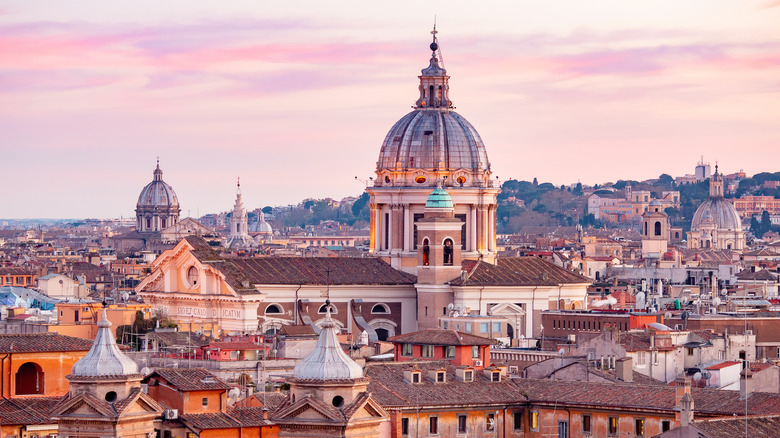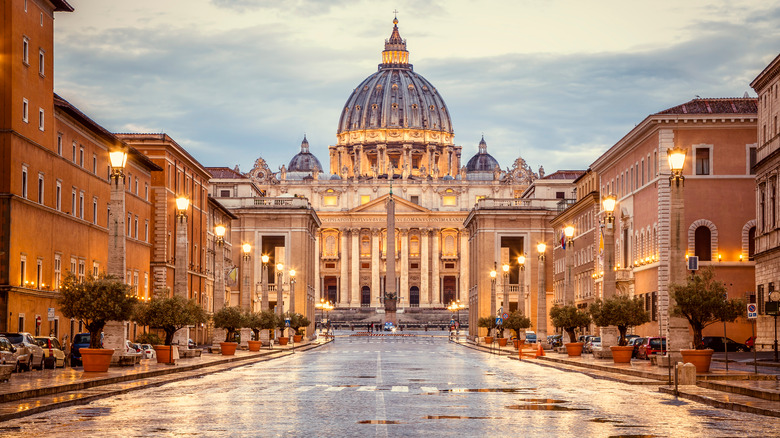How Citizenship Really Works In Vatican City
As a country, Vatican City State has a number of unique characteristics. For starters, it's entirely surrounded by another city (Rome), which is itself in another country (Italy). Further, with a total land area of only .17 square miles (per Britannica), and a population of only 800-900 people, it's the world's smallest fully independent state. Despite its unusual statistics, it checks off all of the boxes that make a place a country, including (but not limited to) its own military service (the Swiss Guard) and its own head of state (the pope).
As an independent country, Vatican City also confers citizenship. According to Visa Index, a Vatican City passport is one of the more desirable passports in the world (along with those of North American countries and other Western European countries) due to the degree of mobility it provides the bearer.
However, citizenship in Vatican City is a different beast altogether than it is in, say, the United States or Germany. Another unique quality of Vatican City is the way it determines who is a citizen and who is not.
Vatican City citizenship is kind of like an extended work permit
There are generally three legal concepts that govern how someone is deemed a citizen of a particular country, according to the Library of Congress: by virtue of being born there, by virtue of having parents who were citizens, or by virtue of living there. Since the majority of residents of the Vatican are men who have taken vows of celibacy, births are few and far between, and when they do occur, they happen in the hospitals of Rome. Accordingly, says Bright Side, it has a birth rate of zero.
The Library of Congress reports that Vatican City's method of conferring citizenship is unique among the world's countries. The legal principal at work is called "jus officii," and it means citizenship by virtue of holding an office. Or, put more simply, you achieve Vatican City citizenship via a decision from the country's government, and it's generally only handed out to officials who are required to serve at the Holy See, to the Holy See's diplomats, and to the wives and children of the few Vatican City citizens who aren't bound by vows of celibacy. Citizenship is also temporary, says Bright Side.
As for the popes themselves? Usually popes give up their native citizenship when they're elected to office. The last two popes are exceptions: Pope Francis retains his Argentinian citizenship in addition to his citizenship in Vatican City, and his immediate predecessor, Pope Emeritus Benedict XVI, has also kept his German citizenship.

